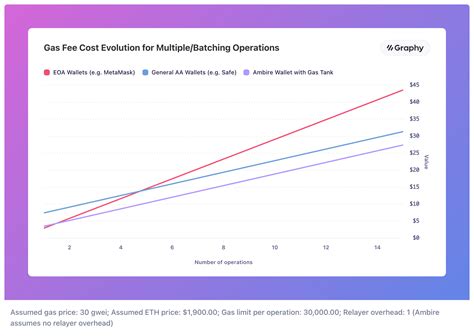Research of gas fees and their impact on APTOS (APT) transactions
The world of cryptocurrencies has crossed the long way since the first blockchain was introduced in 2009. One of the key components that enables the functioning of these digital currencies is the transaction process, which includes payments. In this article, we will break into the concept of gas fees and their impact on APTOS (APT) transactions.
** What are the gas fees?
Gas fees relate to small amounts of cryptocurrencies that users or knots pay in the blockchain network as an incentive to confirm transactions and processing on the network. These fees are possible « gas » used to compensate for a miner or validator who work hard to ensure and maintain blockchain integrity.
APTOS (appropriate) and its gas fees
APTOS, also known as APTOS Network, is a blockchain with a evidence that aims to ensure faster time of transaction processing and lower fees compared to other crypto currencies like Bitcoin. The APTOS Network uses a unique consensus algorithm called PROOF FACE (POS), which rewards users with APT tokens to confirm transactions.
gas fees in APTOS transactions
Gas related fees associated with APTOS transactions are similar to those of other blockchain evidence. The fees are determined by the number of blocks that need to be mined, and each block has an appropriate gas limit (amount of gas available). In order to make a transaction on the APTOS network, users must pay gas fees in APT tokens.
Effect of gas fees on APTOS transaction

Gas fees may have a significant impact on the performance of APTOS transactions. Here are some key effects:
* Transaction Times : Reduce gas costs the result of a faster transaction time, because miners or validators do not need to wait for long blocks before confirmation and processing new transactions.
* Increased scalability : APTOS network aims to achieve a high block time of 450 seconds (7.2 minutes). Lower gas fees allow users to perform multiple transactions per second, making it easier to use the network.
* Decreased congestion : with a smaller time of transaction and increased scalability, the APTOS network can handle a larger volume of transactions, reducing Congion on blockchain.
* The cost of the Higer transaction: as expected, higher gas fees result in higher transaction costs. This means that users should pay more for their transactions, which can be a significant drawback for some users.
Comparison with other crypto currency
The influence of gas fees on APTOS transaction is similar to the effect on other blockchains evidence of roles such as Ethereum (ETH) or cosmos (atom). However, the APTOS network has some unique features that set it apart from other crypto currencies:
* Lower block time : APTOS Network aims to achieve a lower block time compared to Ethereum and cosmos.
* Higher scalability : APTOS Network is designed to handle high quantities of transactions per second, which makes it more appropriate for high -traffic applications.
Conclusion
In conclusion, gas fees play a key role in the functioning of Blockchain APTOS (APT). Although lower gas fees result from a faster transaction time and increased scalability, they can also increase transaction costs. As the APTOS network continues to develop and improve, users will need to be aware of these factors when deciding which cryptocurrencies to use.
Customer Recommendations
To reduce their impact on gas fee on APTOS transactions:
* optimize your wallet : Make sure you use a light wallet that can quickly process transactions.
Use real coins : Choose appropriate tokens or other low -attached coins that are suitable for your needs.
